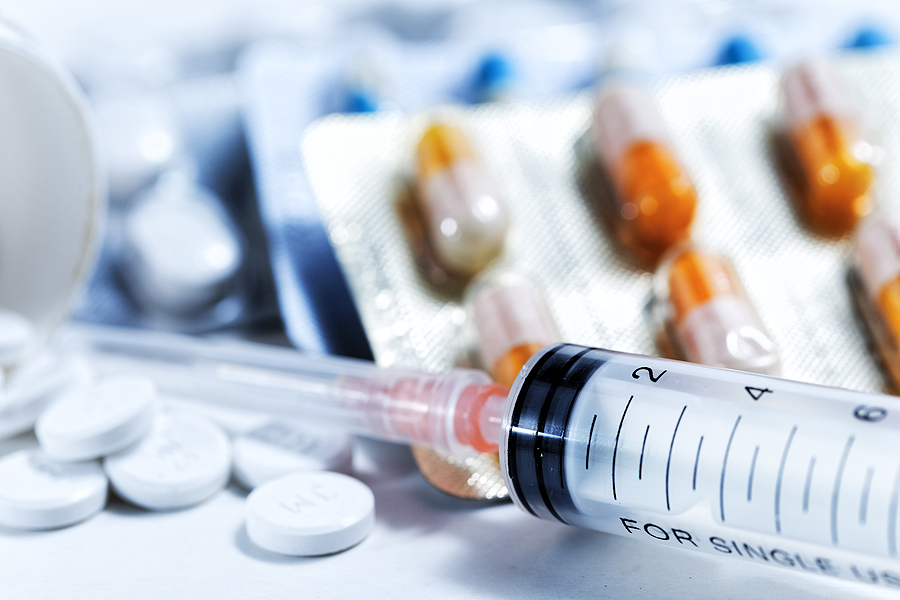Common Medication Allergies to be Aware of: Signs and Symptoms
Posted By:SSG Admin Posted On:29-Jul-2024
People experience allergic reactions to many things throughout their lives, some experience more severe allergies than others. There are allergies to plants and trees, foods and spices, and medications. Around 5% to 10% of adverse reactions to a medication are caused by allergic reactions, and they account for an average of 4.5% of all hospital admissions.
Allergies occur when your body views something you breathe in or ingest as an intruder. The immune system gets to work building up a defense that can increase inflammation that triggers a host of other symptoms within your body. That inflammation can cause a rash or hives, cause swelling in your nasal passages or throat, and make you incredibly itchy.
Drug allergies can be difficult to deal with because you need that medication, but your body reacts negatively to it, leading doctors to have to find suitable alternatives. Explore the common medication allergies and what their symptoms are.
What Are Common Medications That People Are Allergic To?
What are the most common medications that trigger allergic reactions? There are several.
Anticonvulsants
Anticonvulsants are often prescribed to people experiencing seizures, but they can trigger severe allergic reactions in some patients. Anticonvulsant Hypersensitivity Syndrome is often linked to carbamazepine, lamotrigine, phenobarbitone, and phenytoin and causes a fever and rash, even weeks after stopping the antiepileptic medication. While it’s uncertain what causes this reaction, it’s believed it’s an allergic reaction and that use of the medication needs to stop.
Most patients with an allergy to anticonvulsants see a rash, and that accounts for about 5% to 10% of patients. Anticonvulsant Hypersensitivity Syndrome affects about a very small percentage. Rates in the U.S. average one out of every 5,000 patients taking these medications.
If you have seizures, this can make it hard to treat your condition and avoid the reaction. Working with a doctor is essential to finding the right medication and dosing.
Aspirin, Ibuprofen, and Other NSAIDs
Common over-the-counter pain medications can trigger allergies. The symptoms include:
- Congestion
- Hives
- Itching
- Lightheadedness or fainting
- Shortness of breath
- Swelling
- Wheezing
Some people take aspirin and experience high blood pressure, increased bleeding, nausea, and stomach pain. Those are side effects of the medications and not an allergy reaction.
If an allergy is diagnosed, avoiding those medications is usually the best course of action. Switching to acetaminophen may be recommended, though that also requires an honest discussion with your doctor as acetaminophen isn’t right for every patient.
Chemotherapy Drugs
Allergic reactions to chemotherapy drugs are disheartening. You need medication to fight cancer, but your body isn’t tolerating it. Desensitizing your body to avoid severe allergic reactions is crucial.
Chemotherapy drug allergies usually include these symptoms:
- Chest pain or discomfort
- Difficulty breathing
- Dizziness
- Flushing
- Hives
- Itching
- Swelling in the face, throat, and tongue
- Wheezing
Insulin
Like a chemotherapy drug allergy, an insulin allergy is not one you want to learn you have. You’re diabetic and need the insulin, but your body isn’t tolerating it. While not one of the most common drug allergies, it can happen. It’s often tied to insulin products derived from animals, which are becoming less common. If you do have an insulin allergy, the common symptoms include:
- Diarrhea
- Hives
- Itching and redness at the injection site
- Nausea
- Vomiting
- Wheezing
Switching to insulin lispro, a synthetic option, or oral insulin is often recommended if there are allergic reactions.
Monoclonal Antibody Therapy
These drugs are used for everything from treating allergies to helping fight cancer. Ironically, a medication for treating allergies can also cause allergies, but it happens.
Hives and itching are the most common symptoms of this drug allergy, which can be hard to pinpoint if your allergy symptoms being treated are also hives and itching. Some people also experience:
- Chills
- Fatigue
- Fever
- Muscle pain
- Nausea
- Vomiting
Working with an allergy specialist will help you find the best treatment option moving forward. You want a solution that eases your allergy symptoms effectively without triggering other allergic reactions.
Penicillin
Penicillin allergies are the most commonly reported drug allergies and are one of the most likely to also cause anaphylaxis. Symptoms of the allergy and anaphylaxis include:
- Abdominal pain
- Breathing difficulties
- Diarrhea
- Dizziness
- Hives
- Itching
- Low blood pressure
- Rash
- Seizures
- Swelling of the throat and tongue
Avoidance of penicillin is important. There are other antibiotics on the market, so make sure your penicillin allergy is recorded in your medical charts and wear a First Alert bracelet alerting medical responders to your allergy.
Sulfa Drugs
Sulfonamides are a type of medication found in antibiotics, burn creams, eye drops, and medications for conditions like Crohn’s Disease and Rheumatoid Arthritis. Allergic reactions can occur and include:
- Abdominal pain
- Congestion
- Dizziness
- Hives
- Itchy eyes and skin
- Nausea
- Rash
- Swelling of the mouth and/or throat
- Vomiting
- Wheezing
It’s important to talk to your doctor as there are medications that can interact with sulfa drugs, such as NSAIDs, that may trigger some of the symptoms making you think you have an allergy. Avoiding these drug interactions eliminates the symptoms you’re experiencing.
Know the Differences Between Side Effects and Allergic Reactions
When you get a new prescription, read the paperwork. Pay close attention to the common side effects, uncommon ones, and side effects that should have you calling your doctor for advice.
While the symptoms shown above do vary, it helps to track the most common symptoms of drug allergies for the medications you’re taking. Know what the side effects are and what is more likely to be an adverse reaction.
A medication allergy may progress into anaphylaxis. It’s important to seek urgent medical attention as anaphylaxis can put your life at risk. Those symptoms include:
- Abdominal pain
- Breathing difficulties
- Confusion
- Dizziness
- Heart palpitations
- Hives covering several areas of the body
- Lightheadedness that can lead to fainting
- Nausea
- Rapid pulse
- Vomiting
Don’t ignore medication allergies. The body’s reaction to the allergens can increase over time and become severe. Instead, make an appointment at Premium Allergy & Respiratory Center and have your allergies properly diagnosed. A skin test isn’t always going to help, so you need to be honest about the medications you take, including any vitamins or herbal supplements, foods you eat or drink with your medications, and the reactions you experience.
Doctors need to have a full picture to determine if there’s a possible reaction between things you’re taking or eating with the medications you’ve been prescribed. For example, iron supplements taken for anemia can make you feel nauseous if taken on an empty stomach, but it’s not an allergy. That’s why it’s important to tell your doctor everything.
Once your allergens are identified, there are effective treatments that help your body build up a tolerance that reduces the inflammatory response. The staff at Premium Allergy can help you determine the safest way to take the medications you need without risking a severe allergic reaction.





